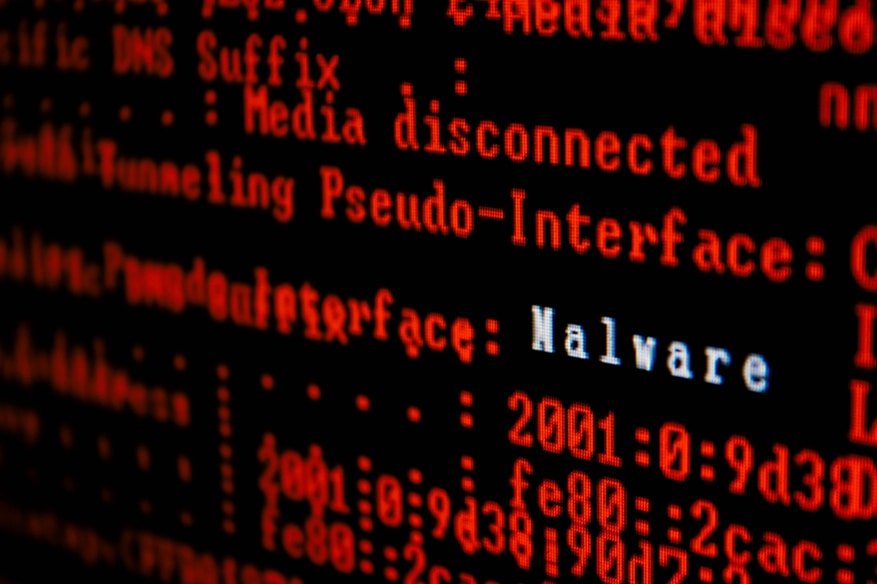Damages Caused by Malware

The harm caused by a virus or malware, which infects a home PC or a corporate system can be diverse – from an insignificant increase in traffic in your network to complete breakdown of the total system breakdown or the loss of data and more. The size of the damage relies upon the objectives of the virus and in some cases; the aftereffects of its action are intangible for the users of the compromised system.
Operability of computers and computer networks
If a system slows down it can be inadvertent. A virus or a Trojan may erase basic framework components, consequently debilitating the OS, over-burden the system with a DDoS assault, or generally contrarily influences the framework’s operability.
Deadly problems are frequently caused by a virus. Bugs can be found in any software product. What’s more, it’s most far-fetched that infections are altogether tried before they are propelled, a training that is reflected by some business items as well. Once in a while the malware is contradictory with the product and equipment of the system whereupon it is run, bringing about severe disappointment or radical increments in spam movement, consequently deadening an organization’s system.
More disastrous things have happened in the past and we have seen how in 1988 the Morris worms that came out and literally crippled the systems of that time. Nearly 6000 machines were infected and about 10 percent of the network went down due to this virus. A virus is basically a program that is written to cause disruption in the regular process of the work and paralyze the system.
More interesting things happened in the past, for instance, the Slammer worm, which literally blacked out the Internet blackout in the USA, Australia, New Zealand, and other places. Those days the network security was not as good as it is today, and the world saw nearly 25 percent of the banking going down on their operations. Lovesan (Blaster, MSBlast), Mydoom, Sasser and other worm epidemics caused terrific damage to airlines which had to cancel the flights, and banks ceased their operations temporarily
Hardware failure
A virus seldom causes hardware failure as modern computers are relatively well protected from software faults. However, in 1999 the CIH virus, also known as Chernobyl, disrupted the operation of an infected system by deleting the data in the Flash BIOS, making it impossible to even boot the computer. Home users had to visit a service center to get the Flash BIOS rewritten in order to restore the machine to working condition. On many laptops, the Flash BIOS was soldered directly to the motherboard, along with the drive, the video card, and other hardware. This meant that in most cases the cost of the repair exceeded the cost of a new laptop, resulting in damaged computers being simply thrown away. Several hundred thousand computers fell victim to the CIH ‘bomb’.
Hardware seizure is a seldom thing during virus attack in today’s modern computer. Back in 1999 a virus called CIH, also known by the notorious name Chernobyl infected the computers across by infecting the system by deleting the BIOS. This literally made user impossible to boot the computer. Computer owners had to rush to the dealers and get the BIOS rewritten so that they can restore the machine to working condition. Imagine in laptops they soldered the Flash BIOS directly to the motherboard along with the other hardware. Several computers were thrown away in the bin just because the cost of rebooting they can better buy a new laptop. Imagine how the Trojan can open and close the CD/DTV drive. We have just moved into another phase of evolution.
Even if there is no visible damage
Trojans or malware does not publicize their presence in the framework. Infections can secretly penetrate the system, and both the files and the system will stay operational. Trojans can conceal themselves in the system and covertly do their Trojan thing – and on its substance, everything appears to be fine, nonetheless, it is just a front.
A virus on a corporate network can be considered a force majeure and the damage caused by it as being equal to the losses associated with the network downtime necessary for disinfection. A Trojan’s presence is also a highly undesirable thing, even if it does not constitute any threat to the network. The Trojan may only be a zombie server sending out spam, but it consumes network and Internet resources and the compromised computers can distribute a great deal of spam which is likely to be directed towards the company’s own corporate mail server.
An infection of a corporate system can be viewed as a power majeure and the harm caused by it as being equivalent to the misfortunes related to the system downtime. A Trojan’s presence is an exceedingly bothersome thing, regardless of whether it doesn’t constitute any danger to the system. The Trojan may just be a zombie server conveying spam, however, it expands system and Internet assets and the traded off PCs can appropriate a lot of spam, which is probably going to be coordinated towards the organization’s own particular corporate mail server.
Unfortunately, a considerable number of home users do not realize the problem and do not protect their computers. Our survey from December 2005 showed that 13% of the Russians that took part had no antivirus program installed on their machines.
Most of these users were completely unaware that their computers could become a base for spam distribution and attacks on other network elements. Let’s leave it to their conscience.
Also Read:
A New Malware Called Silex Targets IoT Devices
How to Detect and Remove Malware from Websites
Japanese Government to Deploy Defensive Malware